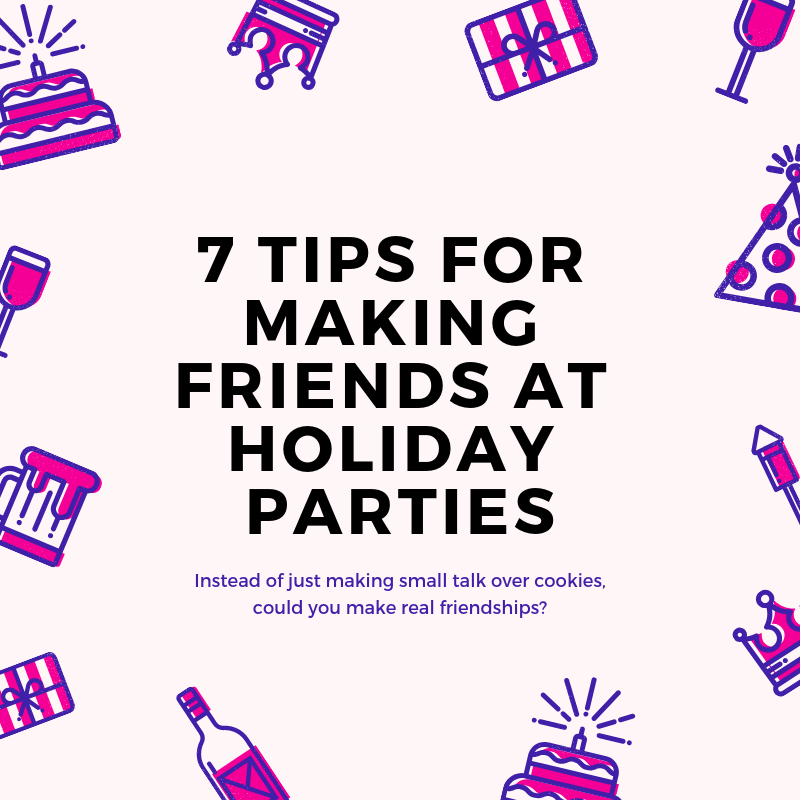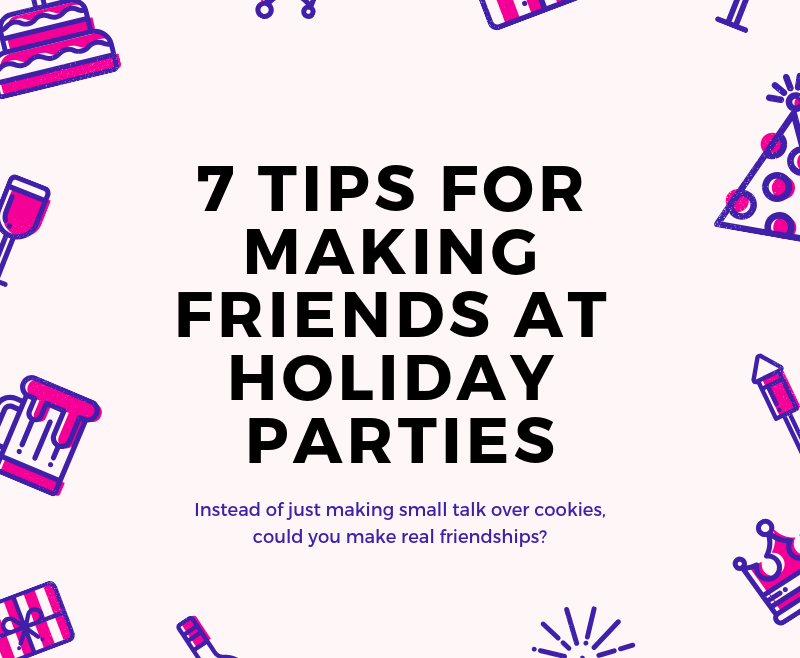I’m hardly the first person to observe it’s harder to make friends as an adult than when we were all on the playground together. Just a very small sample:
- Why Making Friends As An Adult Is So Hard — Scary Mommy
- How to Make Friends as an Adult — Time Magazine
- Let’s Talk About Why It’s So Damn Hard to Make Friends As Adults — Greatist
- How to make friends as an adult — Vox
- Loneliness isn’t inevitable — a guide to making new friends as an adult — The Guardian
That Guardian article above notes:
a study from the University of Kansas found that two people need to spend 90 hours together to become friends, or 200 hours to qualify as close friends.
There’s a reason so many people maintain college friendships. With work, family and other adult demands, when will you have the time for those long hangouts that come so easily in the dorm when everyone is your age and having a similar life experience?
Go to dinner in the cafeteria with your neighbor a few times a week for one semester and you can easily hit your 90 hours. Now find me 90 hours for socializing in your adult calendar. I’ll wait …
The first step toward making friends is meeting people you might want to spend 90 or 200 hours with.
When people are out drinking eggnog in festive settings, maybe you have more opportunities to make a friend, whether that’s co-workers at the office party or parents at your kid’s elementary school.
From small talk to real friendship
 I mentioned to some coaching classmates that we’d gone to the birthday party of a close friend, who we met in a bar several years ago.
I mentioned to some coaching classmates that we’d gone to the birthday party of a close friend, who we met in a bar several years ago.
They marveled that we’d turned a random conversation with a stranger into a real friendship. I added that actually, two other couples we love, we met in bars.
Umm, oh yeah, and we just spent Thanksgiving with two couples we met at the now-closed pub around the corner from us.
I didn’t realize how unusual this was until I saw I had the whole table’s attention … apparently, this isn’t something everyone does?
So for the benefit of people who dread making small talk over sugar cookies, or who have a nice enough time chatting at the neighborhood mixer but haven’t developed those connections into friendships, here’s what’s worked for us to meet people:
- Wear a conversation starter — One couple we love started talking to us because I was wearing a New Orleans T-shirt. They love visiting one of our favorite cities, too, and soon we were comparing notes on restaurants we love, where we like to stay and favorite memories. My shirt gave them something to connect with us about, because we likely had something in common. What might that be for you?
- Give your conversation partner something to work with — When I took an improv workshop with my friend Katie Goodman, one of the instructions she gave us was to offer enough information so the other actors can build on it. If you say, “Wow, it’s hot!” your scene partner has to figure out whether it’s summer or you’ve landed in a spaceship on the sun. So if someone asks, “Where are you from?” I could answer, “Saginaw, Michigan,” then close my mouth. I usually add context: “I grew up in Saginaw, Michigan. It’s a General Motors town about an hour and a half north of Detroit. We moved to New York about 12 years ago.” The person I’m talking to can ask me about my hometown or why we moved, or offer a point of connection like, “I’m from the Midwest, too.”
- Move beyond mundane to what you love — How many forgettable conversations have you had about the weather or what you do? Plan ahead to answer softball questions in a way that includes something you’re really interested in. If someone asks, “What’s new with you?” I’m ready to talk about my classes to become a coach, learning to read tarot and promoting John’s book for holiday gifts. I like to ask “What are you excited about lately?” while John often asks about movies or books you’ve loved recently.
- Choose your seat wisely — Sit at the bar, not at a table, to talk to strangers at your local watering hole. People at the bar tend to be more social. At parties, we’ve grabbed seats at a big empty table and waited for people to join us. People willing to sit down with strangers are probably open to conversation.
Once you’ve enjoyed talking with someone, what’s next?
- Have a reason to stay in touch — I’ll ask for their card with a specific reason. “I’ll email you the link to that book we talked about,” is one variation, or “I’ll drop you a note next time we’re going to that thing we talked about. You’re welcome to join us.”
- Offer a low-risk chance to see each other again — Just like asking for a first date, it gives me butterflies to ask someone I like for a coffee or cocktail date. But if John and I are doing something fun anyway, asking someone to join has little downside. If they’re busy or not interested, we’re doing that thing anyway. We host frequent parties and I love inviting new acquaintances to join.
- Say yes — We’ve had people we don’t know well invite us to dinner, to a holiday party, even to come stay with them. If someone extends the invitation, they’ve taken the initiative so we make our default to accept, if we can.
Bonus tip: Once you make those plans — actually follow through. Life is messy and sure, your kid might get sick or you might have to work late, but if you’re just not feeling social when that dinner date rolls around, Jackie Luo’s Vox article on friendship tells us flaking has a cost.
My theory is that flakiness is rooted in dishonesty with ourselves and others about what matters to us. It’s not that we’re malicious; it’s that we’re aspirational. And while that doesn’t negate the harm caused by flakiness, it might explain why it’s so common. At any given point in time, there are countless versions of our lives that we can see for ourselves, and we’re committed to maintaining that optionality. We could be a person who has that hobby or goes to that event or has that friend; we have that option, and we expect it’ll always be there.
But inevitably, we make choices, and slowly over time, the choices we have made, not the choices that we could make, are what, in the aggregate, decide who we are. When it comes to friends, it’s the relationships we’re invested in that count — not the relationships we could invest in if we ever made the time for them.
Making a plan and sticking to it is how you start running the meter toward your 90 hours of friendship. So say yes to that holiday party invite and find someone you might like to get to know, one or two hours at a time.
Related posts:
- Make time for close relationships this week
- Resolve to build your social connections
- How do you make friends? Do you seek out people you want in your life?
- Friends help extend your life. And make life worth living.
- Pointers on hosting simple weekday suppers
- Why I’m grateful our new Christmas tablecloth looks tie-dyed
- The benefits of being a regular are worth finding and cultivating your local hangout

